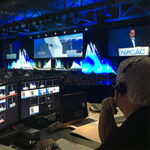What does the future of work look like? Paolo Gallo, senior advisor to the World Economic Forum (WEC) chairman took a stab at that question in his “4 Mega-Trends for the Future of Work” recent post. Here’s my take on what those mega-trends mean will mean for the business-events industry.
1. The top trend is the rise of the contingent worker. In the U.S., according to WEC, 94 percent of the new jobs created from 2005 to 2015 fell into the self-employed category — without the safety net of insurance, medical coverage, social security, and paid vacation. Not only does that serve as a reminder of how many independent planners forego those benefits to build their own business, it shines a bright light on event ROI. In a gig economy, business events have to prove their worth when so many registrants are paying their own way.
2. Longer life expectancy, which gives rise to mindset shift. We all need to realize “that we have a life of continuous learning ahead of us,” Gallo writes, as retirement at 60 seems less likely. As people continue to seek out ways to remain professionally relevant, the business-events industry future looks bright — providing we can continue to provide meaningful ways for people of all ages to connect with and learn from others.
3. The explosion of new professions — will require experts in AI, IoT, cybersecurity, machine learning, robotics, and other advanced technologies. That’s more good news for the events that can prove themselves as the best means of education and community building in these burgeoning fields.
4. Women. “I’m convinced that the future belongs to women,” Gallo writes. “Why? Because they tend to possess the human characteristics that will give them the advantage in the new jobs of the Fourth Industrial Revolution. Like the capacity for collaboration (instead of competition), empathy, creativity, listening, and learning.” We know that meetings professionals are predominantly women. But I think event organizers, regardless of gender, who are able to design and execute rich and valuable experiences for their participants must possess those qualities — collaboration, creativity, and learning — in spades.




